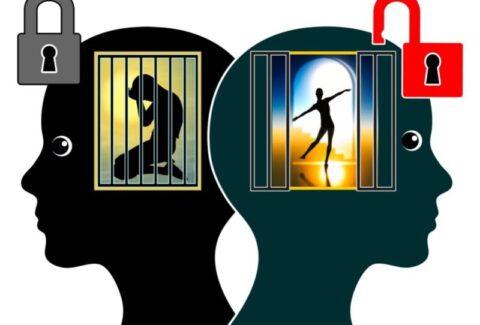Authentic Connection through Interpersonal Psychotherapy (IPT)

Authentic Connection through Interpersonal Psychotherapy (IPT)
In a world increasingly defined by digital interactions and fleeting connections, the pursuit of authentic human connection has become a beacon of hope and healing. Amidst this quest, Interpersonal Psychotherapy (IPT)[1] emerges not just as a therapeutic approach but as a profound journey towards understanding and nurturing genuine relationships.
At its core, IPT recognizes that our emotional well-being is intricately intertwined with the quality of our interpersonal connections. It acknowledges the profound impact of our relationships on our mental health, shaping our sense of self-worth, belonging, and emotional resilience. In a therapeutic context, IPT becomes a transformative space where individuals embark on a journey of self-discovery through the lens of their relationships.[2]
One of the foundational principles of IPT is its focus on the here and now—on the patterns and dynamics of our interactions with others.[3] It invites us to explore how our communication styles, conflict resolutions, and attachment patterns shape our emotional experiences. Through this exploration, IPT helps unearth underlying emotions and unmet needs, paving the way for healing and growth.
Central to the IPT process is the cultivation of empathy and understanding. As individuals engage in open, honest dialogue within the therapeutic space, they learn to communicate authentically, to listen deeply, and to express themselves genuinely.[4] This process not only fosters greater self-awareness but also enriches their capacity to form meaningful connections outside the therapy room.
Moreover, IPT serves as a catalyst for emotional regulation and resilience. By addressing interpersonal conflicts and enhancing relational skills, individuals gain tools to navigate life’s challenges more effectively. They learn to set boundaries, manage expectations, and cultivate healthier relationships based on mutual respect and trust.[5]
Beyond its clinical applications, IPT embodies a profound humanistic philosophy[6]—one that celebrates the inherent dignity and worth of every individual. It reminds us that authentic connection is not just a therapeutic goal but a fundamental human need—a source of joy, fulfillment, and emotional sustenance.
In a world often marked by superficiality and disconnection, IPT[7] stands as a testament to the power of genuine human connection. It invites us to embrace vulnerability, to cherish our shared humanity, and to cultivate relationships that nourish our souls. Through IPT, we learn that healing begins with connection—connection to ourselves, to others, and to the rich tapestry of human experience.
As we continue to navigate the complexities of modern life, let us heed the wisdom of IPT and prioritize authentic connection. For in our connections lies the transformative power to heal, to grow, and to thrive—together.
[1] Weissman, Myrna M., John C. Markowitz, and Gerald L. Klerman. The guide to interpersonal psychotherapy: updated and expanded edition. Oxford University Press, 2017.
[2] Markowitz, John C. “Interpersonal psychotherapy.” Tasman’s Psychiatry. Cham: Springer International Publishing, 2023. 1-22.
[3] Kivlighan Jr, Dennis M. “Three important clinical processes in individual and group interpersonal psychotherapy sessions.” Psychotherapy 51.1 (2014): 20.
[4] Kopelman-Rubin, Daphne, et al. “I can succeed, a new social emotional learning program for children based on interpersonal psychotherapy for adolescents.” European Journal of Developmental Psychology 18.1 (2021): 112-130.
[5] Aminizadeh, Soheila, Ghasem Askarizadeh, and Masoud Bagheri. “The Effectiveness of Dynamic Interpersonal Psychotherapy on Psychological Symptoms, Emotion Regulation and Quality of Life of Psychodermatologic Patients.” Psychological Studies 18.2 (2022): 119-132.
[6] Elliott, Robert, et al. “Research on humanistic-experiential psychotherapies.” Bergin and garfields’ handbook of psychotherapy and behavior change (2021): 421-468.
[7] Lipsitz, Joshua D., and John C. Markowitz. “Mechanisms of change in interpersonal therapy (IPT).” Clinical psychology review 33.8 (2013): 1134-1147.






